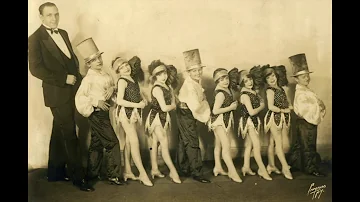Why was it called vaudeville?
The term vaudeville, adopted in the United States from the Parisian boulevard theatre, is probably a corruption of vaux-de-vire, satirical songs in couplets, sung to popular airs in the 15th century in the Val-de-Vire (Vau-de-Vire), Normandy, France.
What is the origin of vaudeville?
Vaudeville was a fusion of centuries-old cultural traditions, including the English Music Hall, minstrel shows of antebellum America, and Yiddish theater. Though certainly not free from the prejudice of the times, vaudeville was the earliest entertainment form to cross racial and class boundaries.

Who started vaudeville?
Benjamin Franklin Keith, however, earns the distinction of "the father" of American Vaudeville. Keith began his career in show business working variously as a grifter and barker with traveling circuses in the 1870's, and for dime museums in New York.
What were vaudeville shows called?
Vaudeville was a form of live entertainment that began in the early 1900s. The performers were known as vaudevillians: comedians, magicians, and musicians who traveled all over the country to participate in theater variety shows. Chains of variety shows were known as circuits.
What came before vaudeville?
What eventually became known as vaudeville had its origins in minstrel shows, concert-saloons, and beer gardens. Unlike the minstrel show, which appealed to broad audiences of both sexes, early variety or vaudeville was designed for men only.
What’s another name for vaudeville?
Eventually, it came to mean a type of variety show that mixed comedy and music. Vaudeville, or "music hall," was popular between the end of the nineteenth century and the beginning of the twentieth.
When did vaudeville first start?
The first known instance in the USA of an entertainment called 'vaudeville' occurred when a French troupe arrived in 1819, but the name didn't achieve consistent currency until 1840 when a Boston actor-producer, Wyseman Marshall, staged a summer season of eleven weeks of short plays, recitations and decorous song and …
What does vaudeville literally mean?
V. vaudeville: a form of stage entertainment that includes a variety of acts; was extremely popular in the early 20th century; the term comes from the Valley of Vire in France, known for its music and entertainment in the 15th century.
Who is the most famous Vaudevillian?
Milton Berle is remembered fondly as one of the best comedians of the Vaudeville era and also played an important role in continuing vaudeville into early television. Vaudeville was the most popular form of American Entertainment from the 1860s to the 1930s and even continued up to the '60s.
What language is vaudeville?
The word vaudeville comes from the French phrase voix de ville, "voice of the city." Definitions of vaudeville. a genre of variety show with songs, comic acts, etc.
Who was the king of vaudeville?
Bert Williams (1874-1922) was one of the pre-eminent entertainers of the Vaudeville era, and one of the most popular comedians for all audiences of his time.
What best defines vaudeville?
vaudeville, a farce with music. In the United States the term connotes a light entertainment popular from the mid-1890s until the early 1930s that consisted of 10 to 15 individual unrelated acts, featuring magicians, acrobats, comedians, trained animals, jugglers, singers, and dancers.
Does vaudeville still exist?
Vaudeville has a lifespan in the U.S. and Canada of about 50 years, starting in the 1880s and ending in the 1930s. It became the place where entertainers from around the world could make it big with 10 minutes of stage brilliance, buffoonery, or bombastics.
Why did vaudeville disappear?
The great financial depression of the 1930s and the growth of radio and later of television contributed to the rapid decline of vaudeville and to its virtual disappearance after World War II.
